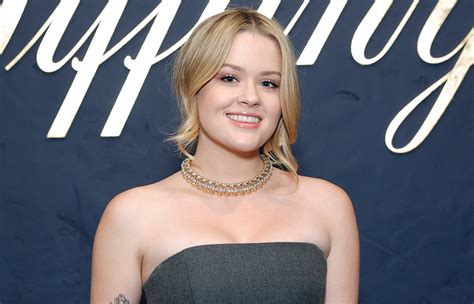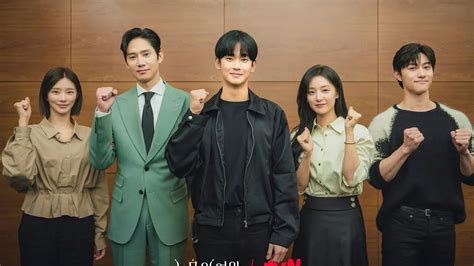
Sophie Rain has ignited a social media firestorm by labeling Bonnie Blue’s OnlyFans content a “clown show,” escalating tensions between the two adult content creators and sparking a wider debate about standards, authenticity, and financial strategies within the platform.
Adult content creator Sophie Rain has publicly criticized Bonnie Blue’s OnlyFans content, calling it a “clown show” and questioning the authenticity of Blue’s persona and content strategy. This statement, made during a recent interview, has rapidly spread across social media platforms, fueling an ongoing debate about the quality and standards within the OnlyFans community, and further highlighting the competitive and often controversial landscape of the adult entertainment industry.
Rain’s critique appears to stem from a fundamental difference in approach to content creation on OnlyFans. Rain, who has established a significant presence on the platform, seemingly values a more genuine and unfiltered approach, while she views Blue’s content as overly contrived and inauthentic. “I’m just gonna keep it a buck. Bonnie Blue’s OnlyFans is a clown show,” Rain stated, directly challenging Blue’s methods and the perception of her brand. This bold declaration has not only intensified the personal rivalry between the two creators but also opened a Pandora’s Box of discussions surrounding the varying strategies employed by individuals seeking to monetize their online presence.
The repercussions of Rain’s comments have been widespread. Social media users have taken sides, leading to a barrage of commentary and reactions across platforms like Twitter, TikTok, and Reddit. Some users support Rain’s argument, praising her perceived honesty and the call for higher standards. Others have come to Blue’s defense, arguing that her content is a form of entertainment that caters to a specific audience, and that Rain’s judgment is unwarranted and potentially damaging.
Bonnie Blue has yet to directly respond to Rain’s comments, maintaining a public silence that has further fueled speculation and intrigue. This silence has been interpreted in various ways, with some suggesting that Blue is strategically avoiding direct confrontation, while others speculate that she may be preparing a formal response. The absence of a public rebuttal has not quelled the controversy; instead, it has allowed the debate to evolve and encompass broader issues regarding the dynamics between creators, the expectations of subscribers, and the overall direction of OnlyFans as a platform.
The controversy underscores the complex nature of content creation on OnlyFans, where individuals operate as independent entrepreneurs, navigating a competitive market with varying degrees of success. The platform, which has experienced exponential growth in recent years, has become a significant source of income for many, but it has also attracted scrutiny regarding its content moderation policies, the potential for exploitation, and the impact on the adult entertainment industry.
Sophie Rain’s critique of Bonnie Blue’s OnlyFans content touches on several key aspects of the platform’s ecosystem. First, it highlights the diverse range of content strategies employed by creators. Some prioritize authenticity and direct engagement with their audience, while others focus on creating highly stylized and curated content. Second, it raises questions about the definition of quality and value within the context of OnlyFans. What constitutes “good” content? Is it determined by production value, originality, or the ability to fulfill specific desires and fantasies? Finally, the controversy underscores the importance of personal branding and reputation management in the digital age. In a highly competitive market, creators must not only attract and retain subscribers but also navigate potential controversies and maintain a positive image.
The ongoing debate also provides a glimpse into the evolving dynamics of the adult entertainment industry. Historically, the industry has been characterized by centralized production and distribution models, with studios and agencies controlling the flow of content. However, platforms like OnlyFans have disrupted this model, empowering individual creators to connect directly with their audience and monetize their work. This shift has brought about both opportunities and challenges, including increased competition, the need for greater self-regulation, and the potential for ethical dilemmas.
As the controversy surrounding Sophie Rain’s comments continues to unfold, it is likely to have a lasting impact on the OnlyFans community and the wider adult entertainment industry. The debate may prompt creators to re-evaluate their content strategies, subscribers to reconsider their expectations, and the platform itself to address issues related to quality control and ethical standards. Ultimately, the incident serves as a reminder of the complexities and challenges involved in navigating the ever-evolving landscape of online content creation and monetization.
The clash between Sophie Rain and Bonnie Blue illuminates the broader tensions within the world of online content creation, particularly on platforms like OnlyFans. This isn’t just a personal feud; it reflects deep-seated differences in philosophy, approach, and ultimately, what each creator believes constitutes success.
For Sophie Rain, the emphasis seems to be on authenticity. She projects an image of being unfiltered and genuine, connecting with her audience on a personal level. Her critique of Bonnie Blue suggests a belief that manufactured or overly stylized content is disingenuous and ultimately less valuable. Rain’s perspective aligns with a growing trend among online audiences who crave realness and transparency from the personalities they follow. In a world saturated with curated content, the appeal of authenticity can be a powerful differentiator.
Bonnie Blue, on the other hand, appears to be adopting a more strategic and calculated approach. Her content, as described by Rain, seems to be highly produced and carefully crafted to appeal to a specific audience. This approach is not inherently negative; many successful creators on OnlyFans and other platforms employ similar strategies. The key is to understand the target audience and deliver content that meets their expectations. Blue’s silence in the face of Rain’s criticism could be interpreted as a strategic decision to avoid engaging in a public spat that could potentially damage her brand. It could also suggest that she stands by her approach and doesn’t feel the need to justify it.
The core of the conflict lies in the subjective nature of value. What one person considers entertaining or desirable, another may find unappealing or even offensive. OnlyFans, like any content platform, caters to a diverse range of tastes and preferences. There is no single formula for success, and different creators will find different ways to connect with their audience and generate revenue. Rain’s comments highlight the potential for judgment and criticism within this ecosystem. While some may view her remarks as a call for higher standards, others may see them as an attempt to impose her own values on others.
The financial aspect of OnlyFans also plays a significant role in this dynamic. The platform allows creators to monetize their content directly through subscriptions, tips, and pay-per-view offerings. This direct relationship with fans can be incredibly lucrative, but it also creates pressure to constantly produce new and engaging content. The pursuit of financial success can lead to compromises in terms of authenticity and personal values. Creators may feel compelled to create content that they believe will generate the most revenue, even if it doesn’t align with their own personal preferences.
The controversy surrounding Sophie Rain and Bonnie Blue raises important questions about the ethics of online content creation. To what extent should creators be responsible for the impact of their content on their audience? Should there be limits to what can be shared on platforms like OnlyFans? These questions are complex and multifaceted, with no easy answers. The debate highlights the need for ongoing dialogue and reflection on the ethical implications of online content creation, both for creators and for the platforms that host their work.
Furthermore, the incident underscores the power of social media to amplify voices and ignite controversies. Rain’s comments, initially made in an interview, quickly spread across various platforms, generating a wave of reactions and opinions. This illustrates the speed and reach of online communication in the digital age. Creators must be aware of the potential for their words and actions to be amplified and scrutinized by a global audience. The ability to manage one’s online presence and reputation is becoming increasingly crucial for success in the world of online content creation.
In conclusion, the clash between Sophie Rain and Bonnie Blue is more than just a personal dispute; it is a reflection of the broader tensions and complexities within the world of online content creation. It highlights the importance of authenticity, the subjective nature of value, the financial pressures of the platform economy, and the ethical considerations that creators must navigate. As platforms like OnlyFans continue to evolve and grow, these issues will likely become even more prominent, requiring ongoing dialogue and reflection from creators, platforms, and audiences alike. The situation serves as a microcosm of the larger debates surrounding online culture, freedom of expression, and the responsibility that comes with creating and sharing content in the digital age.
The ripple effects of Sophie Rain’s comments extend beyond just Bonnie Blue and herself. They impact the perception and understanding of OnlyFans as a whole. Critics of the platform often point to examples of perceived low-quality content or ethically questionable practices as evidence of its negative impact. Rain’s “clown show” remark could be interpreted as reinforcing these criticisms, even if that wasn’t her intention.
Conversely, defenders of OnlyFans argue that it provides a valuable platform for individuals to express themselves, connect with their audience, and generate income. They emphasize the agency and autonomy that creators have on the platform, as well as the potential for positive social impact through charitable donations or advocacy efforts.
The controversy also highlights the blurred lines between entertainment, business, and personal expression on OnlyFans. Creators are not simply entertainers; they are also entrepreneurs who must manage their brand, market their content, and navigate the complexities of the digital economy. This requires a diverse set of skills, including creativity, marketing savvy, and financial literacy.
The success of creators on OnlyFans depends on a variety of factors, including the quality of their content, their ability to connect with their audience, and their understanding of the platform’s algorithms and best practices. However, luck and timing also play a significant role. Some creators may find success quickly, while others struggle to gain traction despite producing high-quality content.
The competitive nature of the OnlyFans platform can also lead to stress and burnout. Creators may feel pressure to constantly produce new and engaging content, respond to fan requests, and maintain a consistent online presence. This can take a toll on their mental and physical health.
The long-term sustainability of OnlyFans as a business model is also a subject of debate. The platform has faced challenges related to payment processing, content moderation, and regulatory compliance. It remains to be seen whether it can maintain its growth trajectory in the face of these challenges.
Ultimately, the controversy surrounding Sophie Rain and Bonnie Blue serves as a reminder of the complexities and nuances of the online content creation landscape. There are no easy answers or simple solutions. The key is to approach the issue with an open mind, a willingness to listen to different perspectives, and a commitment to fostering a more ethical and sustainable online ecosystem.
Moreover, the Sophie Rain/Bonnie Blue situation opens up a discussion about the objectification of individuals on platforms like OnlyFans. While creators have agency over their content, the very nature of the platform invites scrutiny and, in some cases, exploitation. Rain’s critique, though arguably harsh, indirectly questions the degree to which creators are commodifying themselves and whether the pursuit of financial gain outweighs potential personal costs.
This aspect ties into broader feminist debates about sex work and empowerment. Some argue that OnlyFans provides a legitimate avenue for sex workers to control their labor and profit from their own bodies. Others express concern about the potential for coercion, exploitation, and the perpetuation of harmful stereotypes. The debate is nuanced and complex, with valid arguments on both sides.
The Sophie Rain/Bonnie Blue dynamic adds another layer to this discussion. It raises questions about the performance of sexuality online and the extent to which creators are presenting an authentic version of themselves. If, as Rain suggests, Blue’s content is a “clown show,” does that imply a level of inauthenticity that undermines the idea of empowerment? Or is it simply a matter of different creators adopting different strategies to appeal to their audience?
The answers to these questions are not clear-cut. What is clear is that the online sex work industry is a rapidly evolving landscape with significant social, economic, and ethical implications. The Sophie Rain/Bonnie Blue controversy serves as a microcosm of these larger issues, highlighting the tensions between individual agency, financial incentives, and the potential for exploitation.
Furthermore, the public nature of this dispute underscores the lack of privacy for content creators. Every comment, every post, every interview is subject to scrutiny and potential misinterpretation. This can be particularly challenging for individuals who are already in the public eye. The Sophie Rain/Bonnie Blue situation highlights the importance of online reputation management and the need for creators to carefully consider the potential consequences of their words and actions.
The incident also raises questions about the role of the media in amplifying these types of controversies. While it is important to report on issues that are relevant to the public, it is also important to do so in a responsible and ethical manner. The media should avoid sensationalizing the story or perpetuating harmful stereotypes. Instead, it should focus on providing context and analysis, and on promoting a more nuanced understanding of the complexities of the online content creation landscape.
In addition to the ethical considerations, the Sophie Rain/Bonnie Blue controversy also highlights the legal and regulatory challenges facing platforms like OnlyFans. The platform operates in a gray area of the law, and its policies are constantly evolving. There is a need for greater clarity and consistency in the regulation of online content creation, in order to protect both creators and consumers.
The Sophie Rain/Bonnie Blue feud encapsulates a critical juncture for OnlyFans, testing its capacity to evolve from a simple content-sharing site to a mature platform that balances creative freedom with ethical responsibility. This situation may impel OnlyFans to institute more defined community standards, offering guidelines for content that aligns with the platform’s values and curbing content perceived as exploitative or damaging. Implementing stricter content moderation policies could help the platform shake off its reputation as a haven for uninhibited content, boosting its trustworthiness and appeal to a broader audience.
Furthermore, the controversy serves as a stark reminder of the critical need for robust support systems for content creators. OnlyFans could explore partnerships with mental health organizations and financial advisors to provide creators with resources to navigate the unique challenges of their profession. These resources could offer counseling services, financial planning advice, and guidance on managing the pressures of online fame and income instability.
This incident also accentuates the growing significance of media literacy among consumers of online content. Educating individuals about the strategies creators employ to monetize their content can empower them to make more informed decisions about their subscriptions and support. Media literacy programs can teach consumers how to recognize manipulative marketing tactics, identify unrealistic beauty standards, and evaluate the credibility of online personalities.
The debate between Sophie Rain and Bonnie Blue is not just about their personal differences, but also about the future of online content creation and the responsibilities of platforms, creators, and consumers in shaping that future. It’s a call for more thoughtful engagement, ethical practices, and a commitment to building a more sustainable and equitable online ecosystem.
Finally, the fallout from Rain’s statements highlights the precarious nature of online income. Many creators rely on platforms like OnlyFans as their primary source of revenue, making them vulnerable to shifts in platform policies, algorithm changes, and public opinion. The volatility of this income stream underscores the need for creators to diversify their revenue streams and develop strong financial planning skills. This might include exploring other platforms, offering merchandise, or investing in other business ventures. Ultimately, the Sophie Rain/Bonnie Blue situation serves as a cautionary tale about the risks and rewards of online content creation and the importance of building a sustainable and resilient career in the digital age.
Frequently Asked Questions (FAQ)
-
What exactly did Sophie Rain say about Bonnie Blue’s OnlyFans content?
Sophie Rain referred to Bonnie Blue’s OnlyFans content as a “clown show” during an interview. She expressed this opinion while discussing differences in content creation approaches and seemingly questioning the authenticity of Blue’s persona and content. The exact quote, as reported, is “I’m just gonna keep it a buck. Bonnie Blue’s OnlyFans is a clown show.”
-
Has Bonnie Blue responded to Sophie Rain’s comments?
As of the latest reports, Bonnie Blue has not publicly responded to Sophie Rain’s comments. Her silence has led to various interpretations and speculations within the online community.
-
What are the key differences between Sophie Rain’s and Bonnie Blue’s approaches to OnlyFans content creation, according to available information?
Based on Sophie Rain’s comments, it appears that she values a more authentic and unfiltered approach to content creation, while she perceives Bonnie Blue’s content as overly contrived and inauthentic. However, without direct statements from Bonnie Blue, this remains an interpretation based on Rain’s perspective.
-
What are the potential implications of this controversy for OnlyFans as a platform?
This controversy could prompt OnlyFans to re-evaluate its content moderation policies, community standards, and support systems for creators. It may also influence how subscribers perceive the platform and its content, potentially leading to changes in subscription patterns and overall platform engagement. The incident also contributes to ongoing discussions about the ethical implications of online content creation and the responsibilities of platforms in fostering a safe and sustainable environment.
-
Where can I find the original source for this news?
The original source for this news is a Yahoo Entertainment article: https://www.yahoo.com/entertainment/articles/sophie-rain-says-bonnie-blue-193002018.html
-
What is OnlyFans and why is it so popular?
OnlyFans is a content subscription service where creators can earn money from users who subscribe to their content. It’s gained popularity due to its accessibility for creators to directly monetize their content, ranging from adult entertainment to fitness, music, and art. The platform offers a direct connection between creators and their fans, allowing for personalized content and a more intimate engagement. This direct monetization model bypasses traditional gatekeepers and offers creators more control over their revenue streams, making it attractive for those seeking financial independence and creative freedom.
-
How does the Sophie Rain/Bonnie Blue situation reflect broader issues within the adult entertainment industry?
The Rain/Blue situation mirrors the evolving landscape of the adult entertainment industry, where traditional power structures are being challenged by independent creators on platforms like OnlyFans. It highlights the tensions between authenticity and manufactured content, the pressures of financial success, and the ongoing debates about the ethical implications of online sex work. The controversy also underscores the increased competition and the need for creators to differentiate themselves in a crowded market.
-
What are the potential benefits and drawbacks of platforms like OnlyFans for content creators?
Benefits include: direct monetization of content, creative freedom, direct connection with fans, and potential for financial independence. Drawbacks include: potential for exploitation, online harassment, income instability, pressure to constantly create content, and the stigma associated with adult entertainment. Creators also face challenges related to content moderation, payment processing, and regulatory compliance.
-
How can consumers of online content be more responsible and ethical?
Consumers can be more responsible by being mindful of the content they consume and support, avoiding platforms that promote exploitation or harmful content, and supporting creators who prioritize ethical practices. They can also educate themselves about the strategies creators use to monetize their content and make informed decisions about their subscriptions. Additionally, consumers can engage in respectful and constructive dialogue with creators and other fans, avoiding harassment or harmful comments.
-
What steps can OnlyFans take to create a more ethical and sustainable platform for creators and consumers?
OnlyFans can implement stricter content moderation policies, provide better support systems for creators, promote media literacy among consumers, and partner with organizations that address issues related to online safety and ethical content creation. The platform can also be more transparent about its policies and practices, and engage in ongoing dialogue with creators and consumers to address concerns and improve the platform. Finally, OnlyFans can advocate for clear and consistent regulations in the online content creation industry to protect both creators and consumers.
-
What is the role of authenticity in online content creation, and why is it important?
Authenticity refers to being genuine and true to oneself in online content creation. It’s important because audiences often connect more deeply with creators who are perceived as real and relatable. Authenticity can build trust, foster stronger relationships with fans, and differentiate creators in a crowded market. However, the definition of authenticity can be subjective, and creators may express their authenticity in different ways.
-
How does the pursuit of financial success impact the content created on platforms like OnlyFans?
The pursuit of financial success can influence content creators to prioritize content that generates the most revenue, potentially leading to compromises in authenticity or personal values. Creators may feel pressure to cater to specific demands or create content that they believe will be popular, even if it doesn’t align with their own preferences. This can create a tension between artistic expression and financial incentives.
-
What are the mental health challenges that content creators may face, and what resources are available to help them?
Content creators may face mental health challenges such as anxiety, depression, burnout, social isolation, and body image issues. The constant pressure to create content, manage their online presence, and deal with criticism or harassment can take a toll on their mental well-being. Resources available to help include mental health professionals, support groups, online communities, and organizations that specialize in providing mental health services to content creators.
-
How does the Sophie Rain/Bonnie Blue situation relate to the broader debate about sex work and empowerment?
The situation highlights the complex and nuanced debate about sex work and empowerment, with varying perspectives on the agency of creators, the potential for exploitation, and the perpetuation of harmful stereotypes. Some argue that OnlyFans provides a legitimate avenue for sex workers to control their labor and profit from their own bodies, while others express concern about the potential for coercion and the commodification of sexuality. The Rain/Blue dynamic adds another layer to this discussion by raising questions about the performance of sexuality online and the extent to which creators are presenting an authentic version of themselves.
-
What are the long-term career prospects for content creators on platforms like OnlyFans?
The long-term career prospects for content creators on platforms like OnlyFans are uncertain, as the industry is constantly evolving and subject to shifts in platform policies, algorithm changes, and public opinion. However, creators can improve their long-term prospects by diversifying their revenue streams, building a strong personal brand, developing transferable skills, and investing in their education and professional development. It’s important for creators to approach their online careers with a long-term vision and to plan for the possibility of transitioning to other opportunities in the future.









